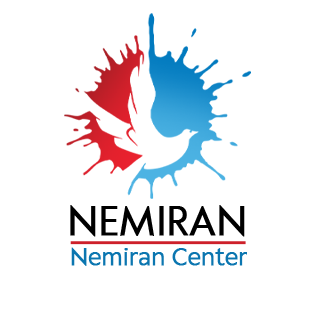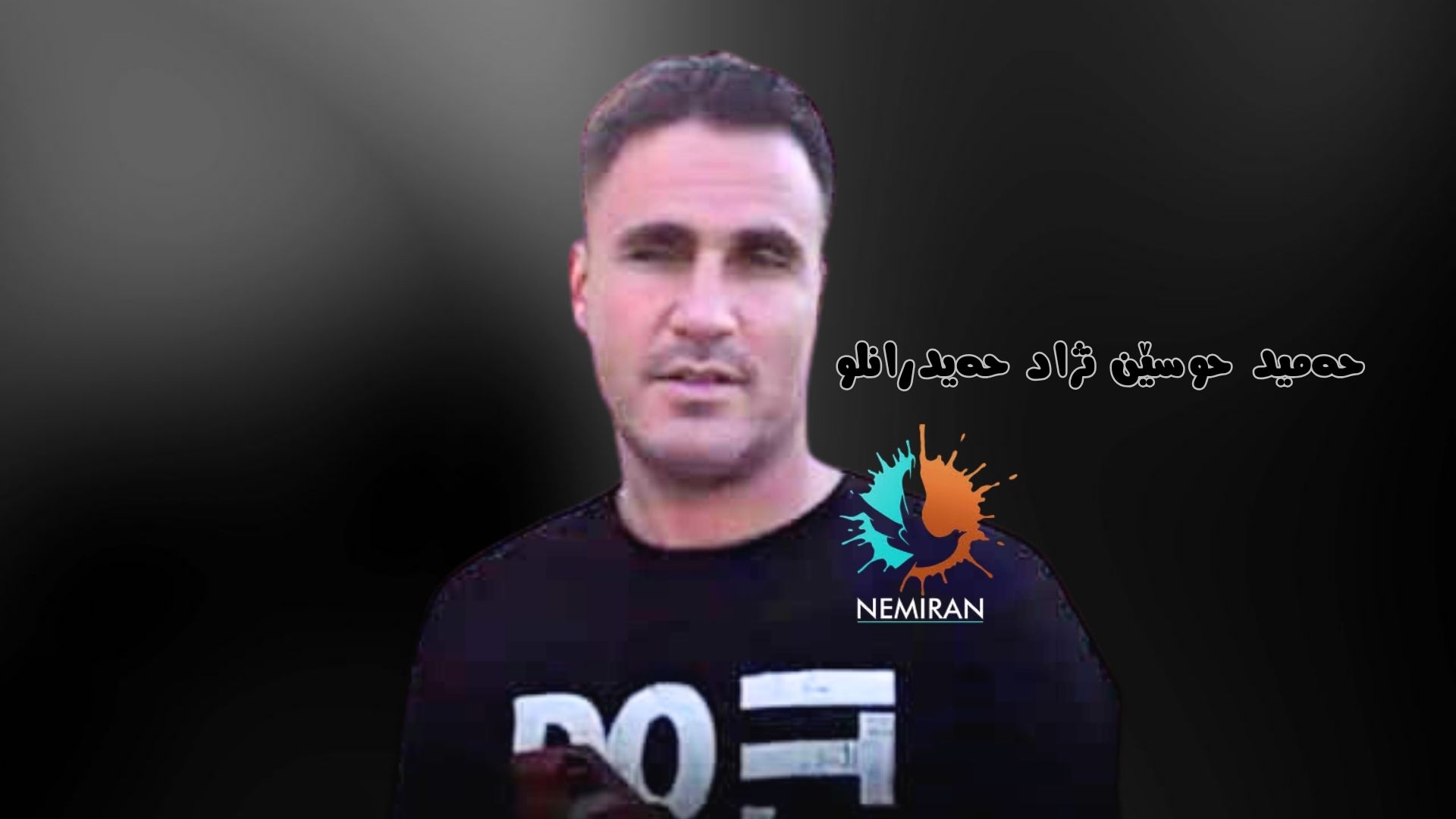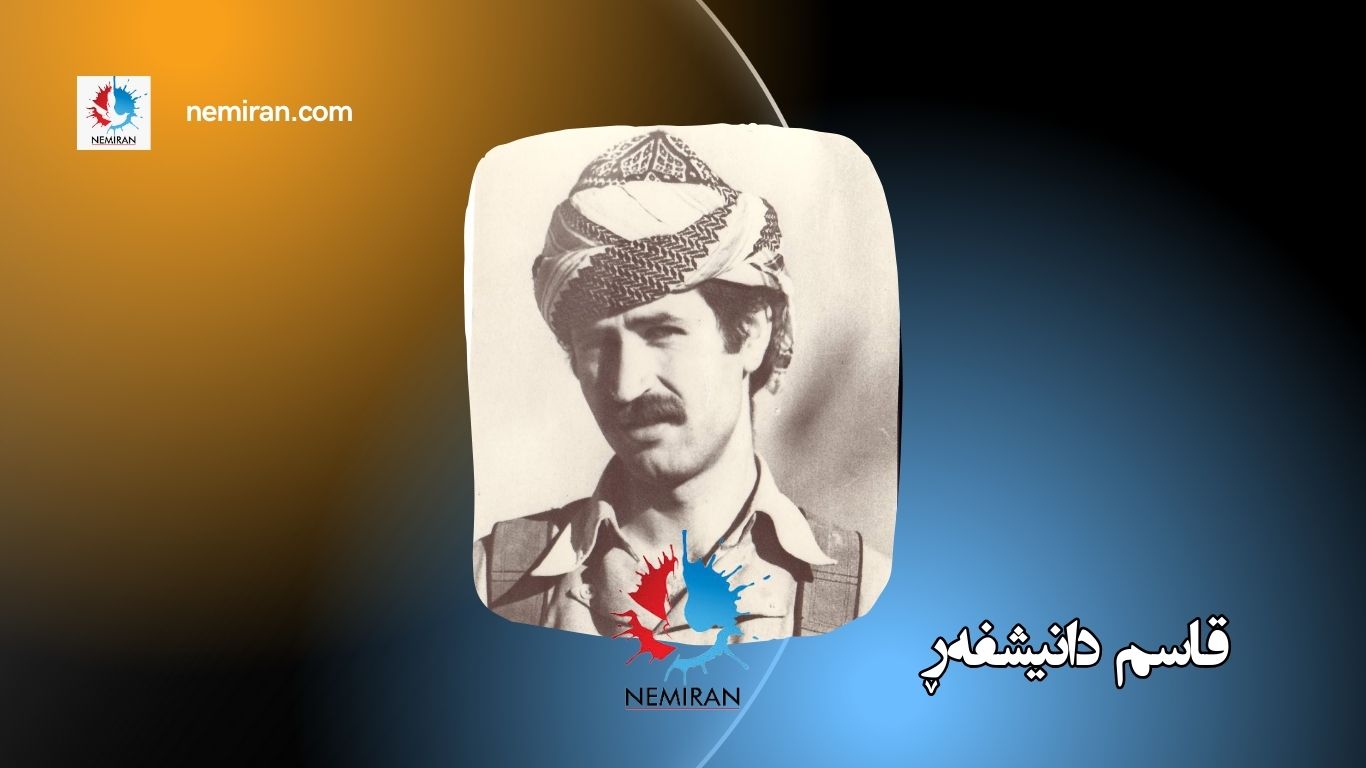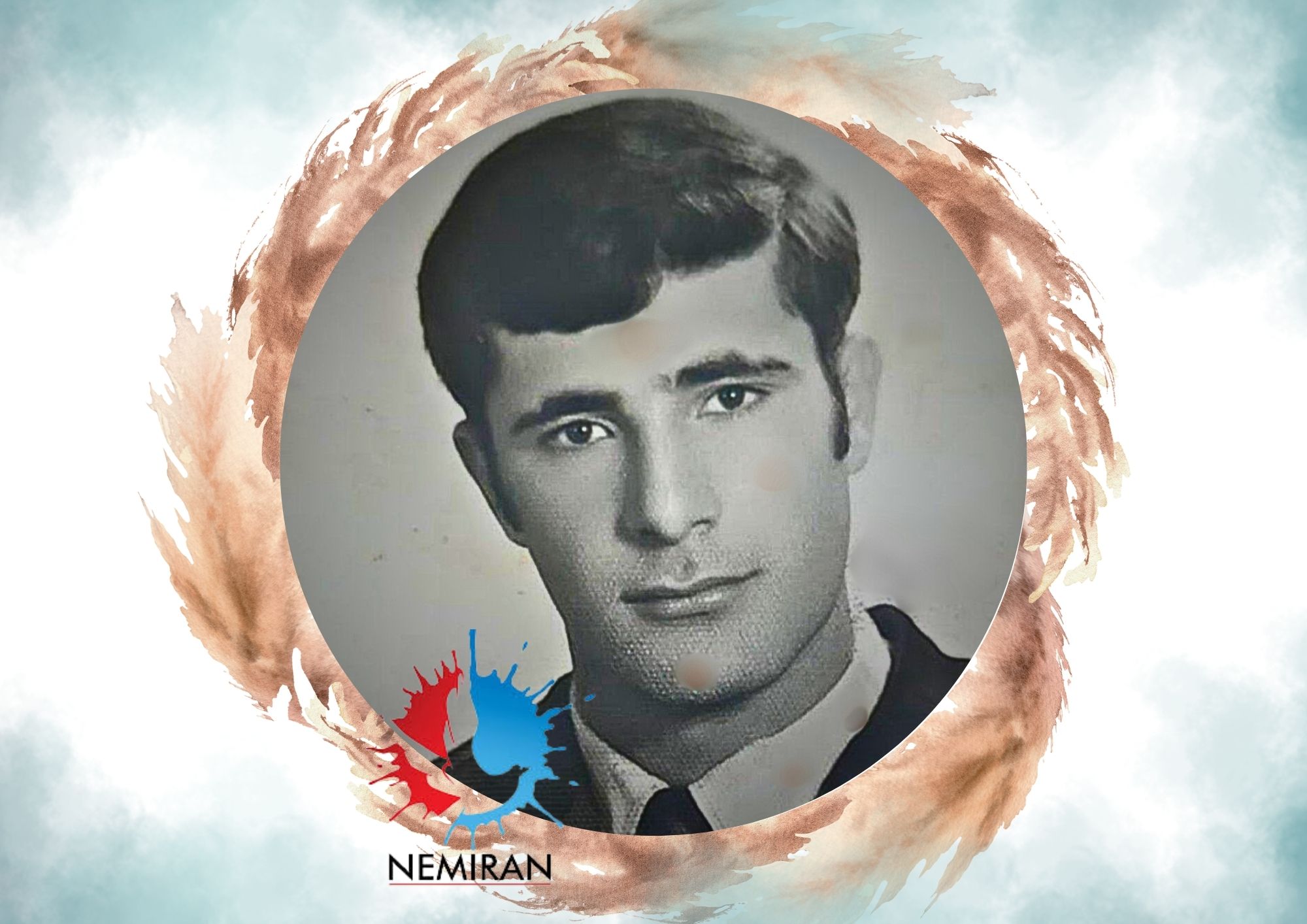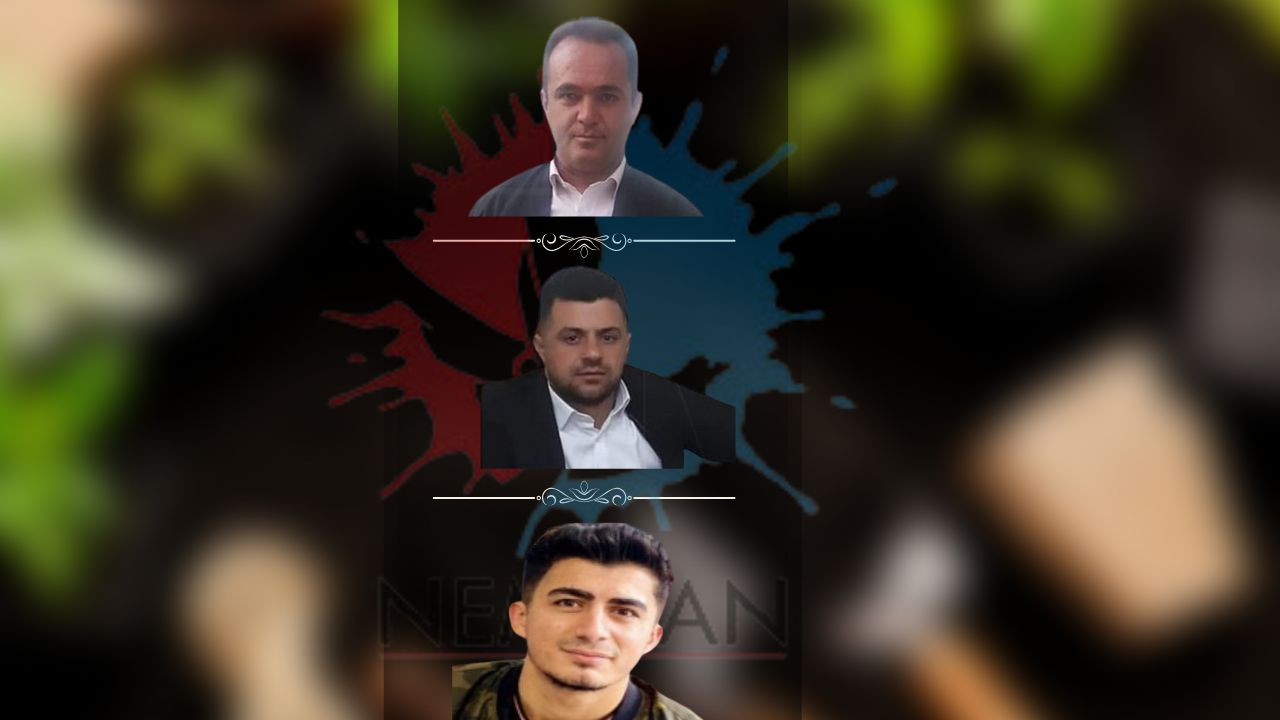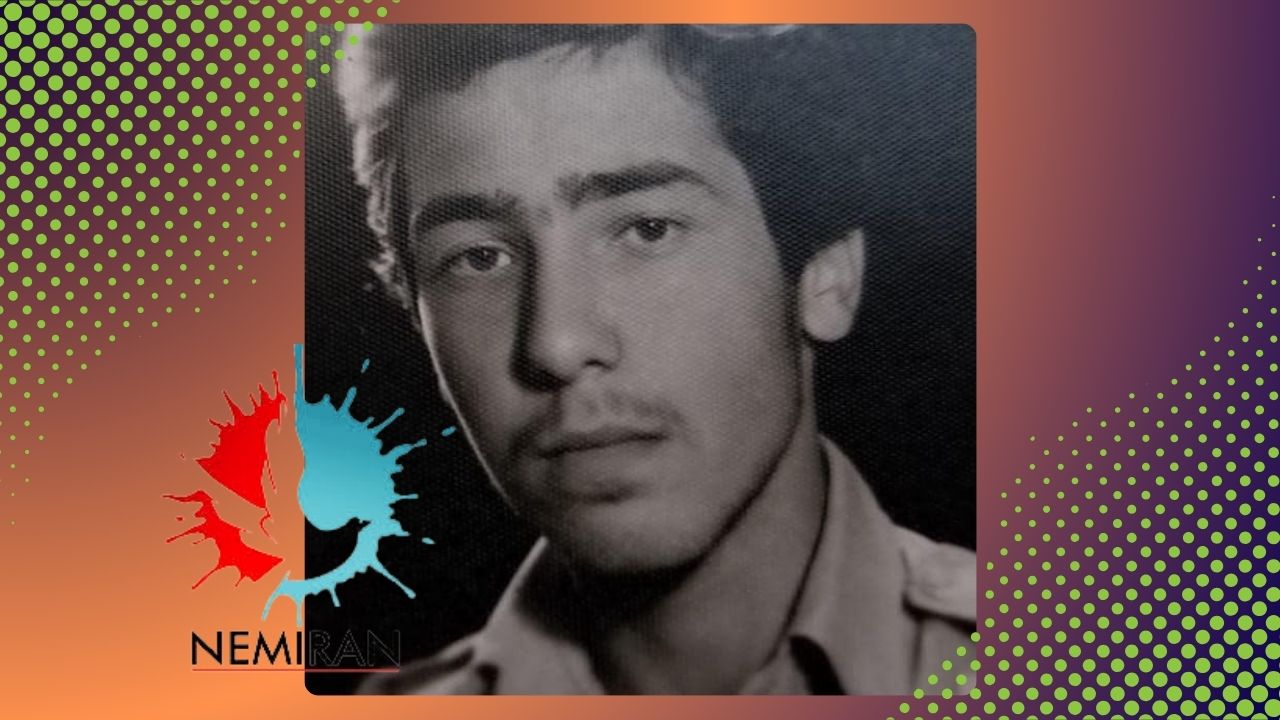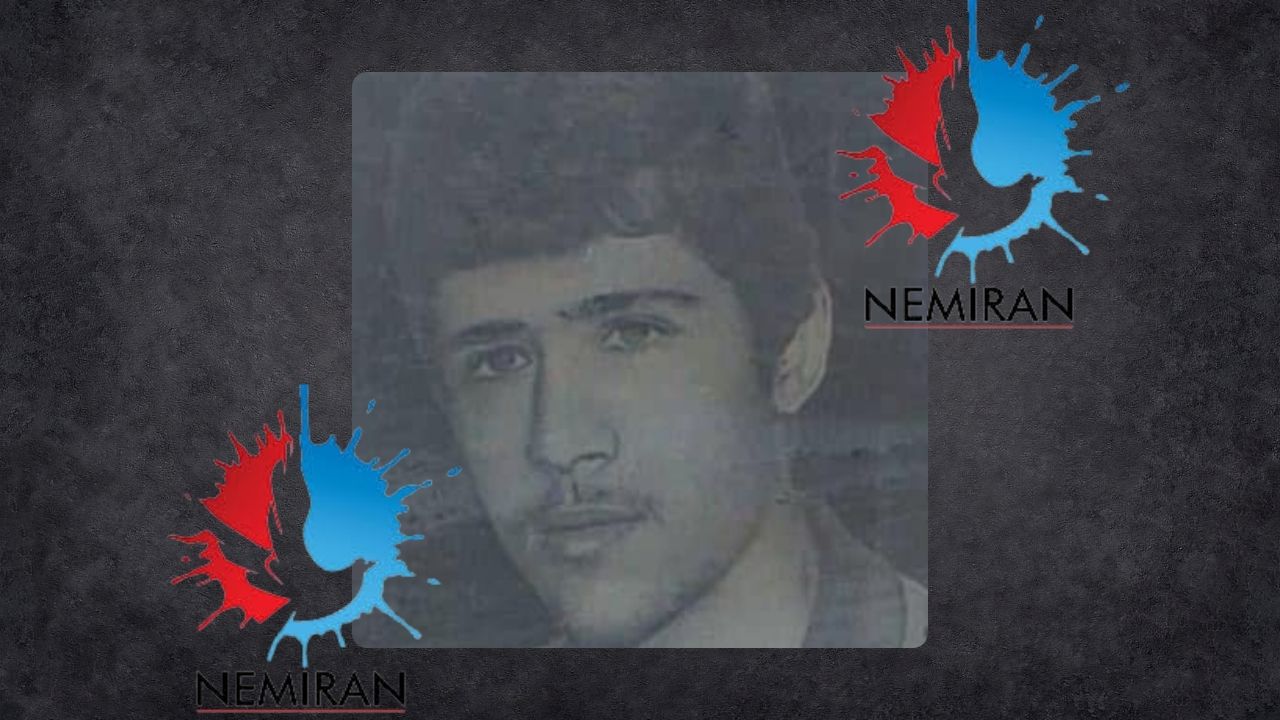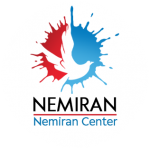Hossein Khezri, son of Ali, was born in the city of Urmia in 1361 Iranian Calendar (1982). He went to school until the third grade of secondary school. He dropped out of school due to poverty and helping his family. He started working in a carpet weaving workshop. He lost 70% of his vision due to work pressure and poor working conditions in that workshop.
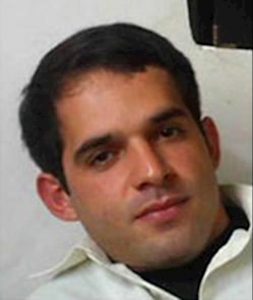
Hussein Khezri felt and suffered totally from ethnic and class discrimination. He struggled in various ways for his minimum national and human rights. As a teenager, he joined the Kurdistan Free Life Party (PJAK) to work for justice and national rights. At the beginning of his membership, he worked in the education department of this party so that he could contribute to the human and basic rights of Kurdish people.
He was arrested in the summer of 2008 in the city of Kermanshah. He was subjected to the most severe inhuman torture. After spending more than 190 days in solitary confinement, he was tried in Branch 1 of the Revolutionary Court, presided by attorney Darvishi on 28.10.1388 Iranian Calendar (18.01.2010). A representative of the IRGC, a representative of the intelligence service and a representative of the prosecutor’s office were present in this court. All three deputies asked permission to speak and asked the judge for severe punishment of Hossein Khezri, before the judge could submit the indictment. The trial was over after asking him a few questions about clearing his identity without giving the opportunity of defending himself. His lawyer notified him of the death sentence the next day. Hossein Khezri had previously denied all these allegations. He had informed his family that the agents of Ministry of Intelligence had tried to force him to make false confessions in a television interview. He was secretly executed in Urmia Prison on 25.10.1389 (15.01.2011) without his family’s knowledge.
It is notable to review once again his famous letters that he wrote from prison to public opinion to a better understanding of the life of this Kurdish fighter and hero. Nobody than he himself can describe in a better way what he had suffered from.
Summary of both letters of Hossein Khezri
I am not upset that I was sentenced to death; I am being condemned as a libertarian. I am Hossein Khezri, son of Ali, born in 1361 (1982) in the city of Urmia. I was arrested in the summer of 1387 (2008) in the city of Kermanshah. I started working with non-governmental civil organizations in Kurdistan and Iran in 2004 as a political activist and believer in civil society. I have always believed that freedom in society is possible only when an individual frees himself completely from the shackles of government and organizes himself democratically and non-governmentally. Only then it is possible to hope for an ideal society in future. In this orientation value, I worked for a long time with civil and human rights activists in Kurdistan. Together with many caring friends, we tried to heal the wounded body of our community.
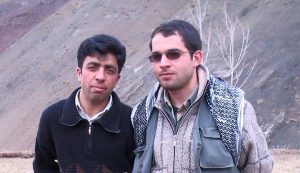
I left for Kermanshah by the suggestion of a friend just before my arrest on 08.05.1387 (29.07.2008). I intended to research on the nature and status of civic activities and to publish the results in an article. In Kermanshah, I got to know a person named Idris Mehdian, who lived in the city of Gilangharb. I left Sanandaj for Kermanshah on the morning of 08.05.1387 (29.07.2008) to meet with him concerning my research. In the morning of Thursday, 10.05.1387 (31.07.2008), I was attacked and arrested by unknown individuals at the Kermanshah terminal. I was subjected to the most severe torture from the very beginning of my arrest. They accused me of counter-revolution and acting against national security without having any evidence against me. I was detained for 49 days in that detention center of the “Nabye Akram” Corps in Kermanshah undergoing the most severe torture. I counted 37 steps each time I had to go to the torture chamber. It was very difficult to go down those stairs carrying handcuffs and shackles. It was more difficult to get upstairs with a body that was constantly tortured, even without handcuffs and shackles. I was returned to my cell unconscious several times.
I was always blindfolded. I was permitted to open my blindfold only in my cell, a narrow and dark place where day and night were not clear. During this time, their goal was to force me to confess issues I didn’t even know. They forced my fingerprint on a slip of paper, I was not even aware of what the contents was, because I couldn’t move my body at all due to the pain of torture.
In the morning of the forty-ninth day, 28.06.1387 (18.09.2008), I was handcuffed, was wrapped in a blanket, and was taken out of the detention center by ambulance. They took me out of that torture chamber and I didn’t know where they were taking me to. I found out that it was an ambulance after someone injected me with a sleeping or an anesthetic medication. I do not know how many hours we were on the road when I woke up or regained consciousness. Two other cars accompanied us from behind and in front. It was clear through their walkie-talkie conversations that we were approaching Urmia, because they were talking about whether or not the lake water was salty. We reached our destination in the evening and I was handed over to the IRGC’s Al-Mahdi Detention Center. In Al-Mahdi Detention Center, everything started from the beginning, torture and interrogation. The first days and weeks were a difficult for me, but I got used to it after staying there for a few months. I no longer cared where my body was bruised I was bruised all over. I had been arrested for four months and nobody knew anything about my fate. After that time, my family was allowed to visit me. I saw my parents for five minutes in the presence of several agents. The result of this meeting was nothing but threats against my parents and pressure on me. Finally, after being held in solitary confinement for 159 days under the most severe torture and unfavorable conditions, the Revolutionary Guards handcuffed me and handed me over to new executioners under the name of intelligence agents.
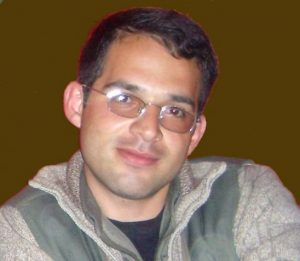
The intelligence service was also deeply annoyed about the fact why only the IRGC had the chance to arrest me. They themselves did not refrain from any other non-human action against me. I had to endure all this torture. I tried to strengthen my will with every baton, whip, kick and punch I got. I was in the intelligence detention center for 40 days under these circumstances. During this time, I suffered a lot of physical, mental and psychological torture including beatings for several hours every day, creating psychological pressure during interrogation, threats to impute my family, my brother and brother-in-law with illegal activities against the regime if I would not accept what they said. Kicking the genitals, bleeding and swelling of those areas of my body for 14 days, the lacerated wound on my right leg was about 8 cm due to the interrogator’s kick, which is still visible, multiple beats to my whole body with an electric baton…
Finally, the Intelligence Bureau allowed me to see a judge of Branch 2 of the Public Prosecutor’s Office after completing my case and spending more than 195 days in solitary confinement on 26.11.1388 (15.02.2010). They informed me of my accusation. The same day, I was handed over to Urmia Central Prison. After spending some time in prison, I was put to trial on 28.11.1388 (17.02.2010) in Branch 1 of the Revolutionary Court, presided by a judge named Dervishi. A representative of the IRGC, a representative of the intelligence service and a representative of the prosecutor’s office attended in this court. All three representatives asked permission to speak and asked the judge to punish me severely before the indictment was expressed to me. From that moment on, I realized that the judge in that show trial was nothing more than a puppet, and that my sentence had already been issued. The judge asked me a few questions that included my biography to show presence. He did not allow me to defend myself against the charges. The sentence issued to me became clear. I was informed by my lawyer that I had been sentenced to death one day after the trial. Although all sentences over 10 years, including the death sentence, had to be heard by the Supreme Court, I was not allowed to do so. The verdict was sent from the court of first instance to the provincial court of appeals to be examined and reviewed. However, this court did not have any jurisdiction over this case. The verdict of the court of first instance was upheld by Branch 10 of the Provincial Court of Appeals by Judges Jalilzadeh, Mohammadi, Hasanlu and Alipour. The verdict was sent to the Islamic Revolutionary court for execution 17.05.1389 (08.08.2010). The case was taken back to the Supreme Court for review after the efforts of my family and the objection of the next lawyer. My request for a retrial was rejected. The final result and decision of the Supreme Court was already revealed with the case file they had prepared for me.
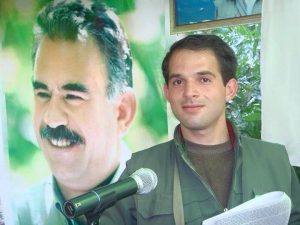
During the detention, my father and family had constantly asked about me at the Revolutionary Court and the Intelligence Service. Upon hearing vague answers, my father thought that I may have been executed. He suffered a stroke in front of the Urmia Intelligence Office and passed away after he was sent to Hospital.
I was not upset that I was sentenced to death because I was being tried as a libertarian. I will die not only once, but thousand more times, if my execution and that of my comrades will be beneficial to our country, because freedom is worth more than that. I was just upset that I was upsetting my family. I hope they forgive me for not being able to fulfill my duty as a child and a brother in my family. I wanted to fulfill my duty for my nation and to be the child of the whole society. The Islamic Republic of Iran may know that Kurdish young people are not afraid of death anymore, because dying as a free man is better than slavery. We will resist achieving freedom and fulfilling our desires to the last breath and will fight to the last drop of our blood. We, the Kurdish youth, die standing, but we will never accept humiliation.
Hossein Khezri, political prisoner
Urmia Central Prison “Band”
Friday, 14.08.1389 (05.11. 2010)
